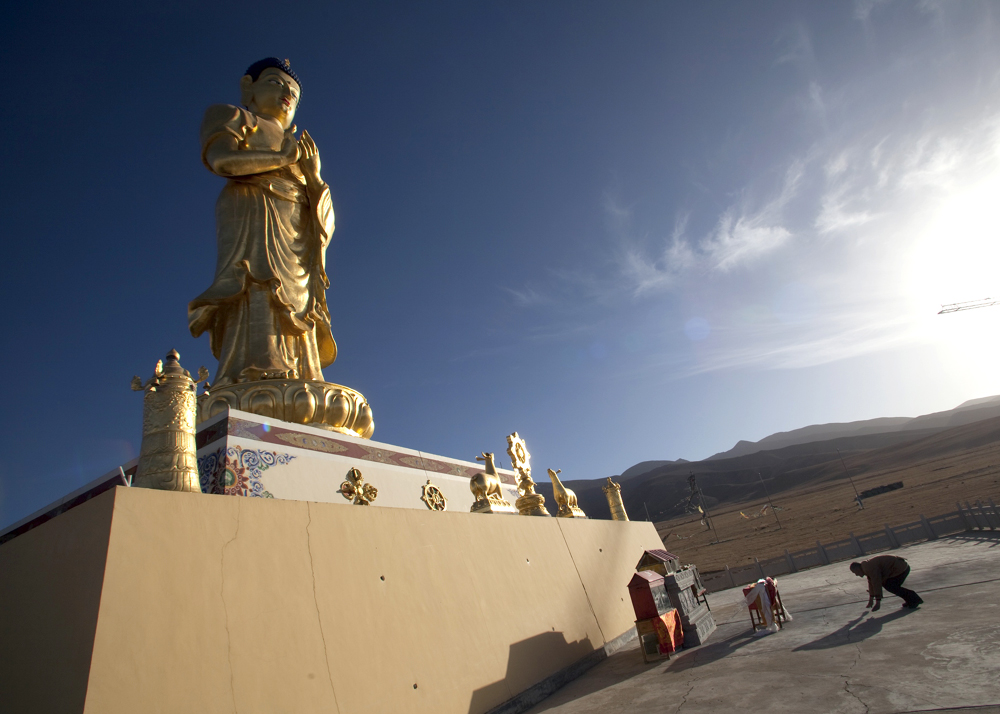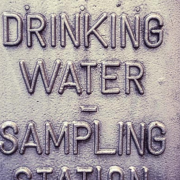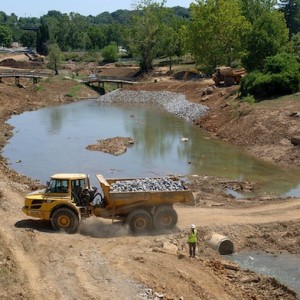Sylvia Lee: Water as a Catalyst for Peace
For World Water Day 2013, Skoll World Forum and Circle of Blue asked four of the world’s leading water experts to weigh in. Here is what Sylvia Lee, leader of the water program at Skoll Global Threats Fund, had to say about the potential for cooperation around water.
Today we celebrate World Water Day — a day to raise awareness on the global water challenge and to advocate for the sustainable management of water resources. The United Nations has declared 2013 as the International Year for Cooperation on Water, recognizing that “water is a shared resource and its management needs to take into account a wide variety of conflicting interests.”
The challenges of the growing global water crisis are well documented. As population increases and as our economies get wealthier, the demand for water increases. McKinsey estimated that, by 2030, there will be a 40 percent gap between global water supply and demand. And climate change has already started to profoundly impact the availability, distribution, and quality of water.
The impact of water challenges as a risk to national, regional, and global peace and security, however, is perhaps less well understood.
More than 260 river basins and 265 aquifers — home to over 40 percent of the world’s population — are shared by two or more countries. If water resources continue to be poorly managed, food and energy production will decline, and waterborne disease will increase. When combined with poverty, social tensions, and weak leadership and institutions, water challenges may lead to social disruptions that cause state instability and regional tension. As United Nations Secretary General Ban Ki-Moon said, “Water scarcity threatens economic and social gains… And it is a potent fuel for wars and conflict.”
Last year, a National Intelligence Council study commissioned by the former Secretary of State, Hillary Clinton, stated “During the next 10 years, many countries important to the United States will experience water problems — shortages, poor water quality, or floods — that will risk instability and state failure and increase regional tensions.”
Examples of these tensions are already evident between states such as Ethiopia and Egypt, India and Pakistan, Tajikistan and Uzbekistan, and China and its Mekong neighbors. In each of these cases, an upstream country plans to build large dams to develop hydropower and irrigation systems, which will likely have significant negative impacts on the downstream neighbor.
Some of the biggest challenges of water insecurity, however, are conflicts over water within a country. The United Nations has suggested that the Darfur conflict began, in part, because of a water crisis. The new U.S. Secretary of State, John Kerry, made a similar observation, “Developing water capacity for people in some parts of the world keeps people from killing each other. It keeps tribes from going out and disintegrating and creating a failed state. I’ve seen that. I’ve been in Sudan, South Sudan, where today people are fighting over water.”
Increasing competition over water resources is also leading to conflicts between agriculture water users, the private sector, and civil society. Private sector companies PepsiCo and The Coca-Cola Company have been accused of stealing millions of liters of water and denying local communities and farmers their fundamental right to water in India. While these accusations are still being sorted in traditional courts and the court of public opinion, it is clear that these types of conflicts will likely continue as available water resources decline.
The news is not all dire.
Historically, water has acted as a catalyst for peace. In fact, studies by experts have found that countries are more likely to cooperate over water than to fight over water. The Indus Water Treaty has withstood the test of two wars between India and Pakistan. During the Vietnam War, countries in the Mekong River Basin still continued technical negotiations. After independence, nine countries in the Niger River Basin created a joint river basin authority to cooperatively manage their joint water resources. In fact, more than 3,600 water-related treaties have been signed in the past 1,200 years.
The role to promote and improve water cooperation is not only confined to governments. Skoll Award for Social Entrepreneur, Friends of the Earth Middle East/Ecopeace, is a unique organization that brings together Jordanian, Palestinian, and Israeli environmentalists to promote cooperative efforts to protect the Jordan River Basin and the Mountain Aquifer in the West Bank. IUCN’s Ecosystems for Life project bring together scientists from India and Bangladesh to do joint research projects across boundaries. The private sector has been actively engaged in various discussions and joint initiatives such as the CEO Water Mandate, the Alliance for Water Stewardship, and the World Business Council for Sustainable Development to develop a set of guidelines for the private sector to engage in water and define “good water stewardship.”
Since water is a common property resource, no one owns the problem and no one owns the solution. To tackle one of the biggest challenges we face in the 21st century, we need to continue to find innovative ways to cooperate and work together to provide water security for all.
Originally published by Forbes on March 22, 2013 for World Water Day 2013. This series of articles, a partnership between Skoll World Forum and Circle of Blue, asked four of the world’s leading experts and innovators working on issues of water scarcity, security, and cooperation to weigh in to offer solutions and help better the understanding of key challenges and opportunities moving forward. This debate will also inform an upcoming session at this year’s Skoll World Forum in Oxford.
Read the other three articles in this series here:
- Michel Jarraud, chair of UN-Water and Secretary-General of the World Meteorological Organization: Water Can Be Fought Over or Shared, But Cooperation Brings More Benefits for All
- Ned Breslin, CEO of Water For People: An Inside Look at Water for People’s ‘Everyone Forever’ Initiative
- J. Carl Ganter, director and co-founder of Circle of Blue: The Biggest Story of Our Lifetime Is Water
Circle of Blue provides relevant, reliable, and actionable on-the-ground information about the world’s resource crises.









Leave a Reply
Want to join the discussion?Feel free to contribute!